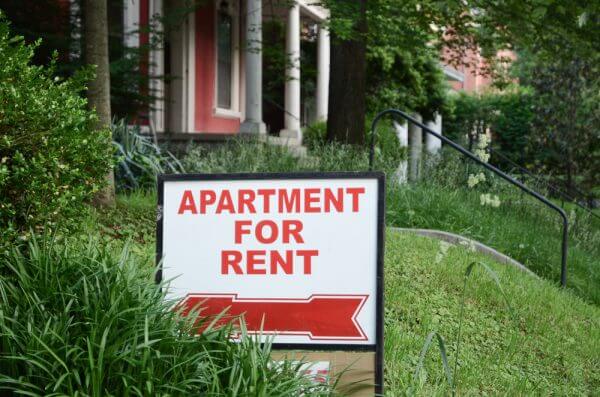One decision that all adults in America have to face in their search for housing is whether to buy or to rent. The choice usually depends on how much they can afford to spend.
The only sure way to determine how much a person or family can afford to spend on housing is for them to live on a budget.
Of course, securing housing that fits within an established budget may require a person or family to settle for a smaller house than they desire or may require that they rent for a while.
Generally, no more than 40 percent of Net Spendable Income (this is income after tithes and taxes are deducted) should be allocated to housing. This includes house payments or rent, taxes, utilities, repairs and maintenance, and telephone.

When determining whether to rent or buy, the following questions need to be considered.
Is employment secure enough to start making mortgage payments? If not, renting should be considered.
How long do we plan to stay in the area? If the plan to stay in the area is less than five years, renting should be considered—if more than five years, ownership may be a good option. The longer a house is held, the less appreciation is needed to justify ownership.
What is the economic outlook for the area (for this information, ask real estate agents, business people, the Chamber of Commerce, and so on)? If the outlook is for growth over the next seven years, buying could be a good option. If little or no growth is projected, renting would be advisable. If the area is at a market peak and the country is about to go into a recession, it probably will be better to rent. If the area is economically at the bottom of the market and the nation’s financial situation is getting better, it might be better to own. If inflation in the area increases, the rental scenario tends to get worse, and the ownership scenario tends to look better.
What is the cost of living in the area? If it is high, purchasing a home might exceed the budget allocation for housing. This means that renting may be the best option. If the cost of living is average, buying probably would be a better option. In a large metropolitan area where real estate is generally much more expensive than elsewhere, it is usually better to rent, unless the person or family is going to own for a long period of time.
What is the rate of real estate appreciation or depreciation in the area? Or at what rate are prices and rents expected to increase or decrease in the area over the next several years? This might be difficult to determine, but an Internet search along with a discussion with local real estate agents should help you find what you need. If appreciation can be guaranteed at a few points above inflation, it will be better to buy. If it cannot or if depreciation is expected, renting would be best.
If you decide to buy, be sure to read this blog to understand everything you need to know about mortgages.
After answering these questions, take the amount allocated for housing in each scenario and compare the costs.
For rent, consider:
For ownership, consider:
Now determine if costs for owning would be equal to or less than rent costs. If they would be equal or less, buying a house may be the wisest choice.
The Housing department at ClearPoint Credit Counseling Solutions offers helpful information for prospective home buyers. They can help you sort through the information mentioned above so you can determine the best course for you and your family. They may be reached at this link or by calling 800-251-2227.
Purchasing a home can be a costly and frightening experience. The process is constantly changing, and potential pitfalls seem to lurk around every corner.
Each person or family needs to learn God’s principles and guidelines for buying a home and then make that decision based on what God is specifically telling them about the lifestyle that they are to lead.
Since the cost of housing is perhaps the greatest expense that most adults in America ever incur, it would be advisable for everyone to study their personal situation, research all the possibilities and options, and then pray for the Lord’s guidance in order to make educated decisions about what is right and appropriate.
Subscribe for Weekly Updates
"*" indicates required fields
Search
Christian Credit Counselors

Is credit card debt causing you stress and strain? Christian Credit Counselors would like to help!